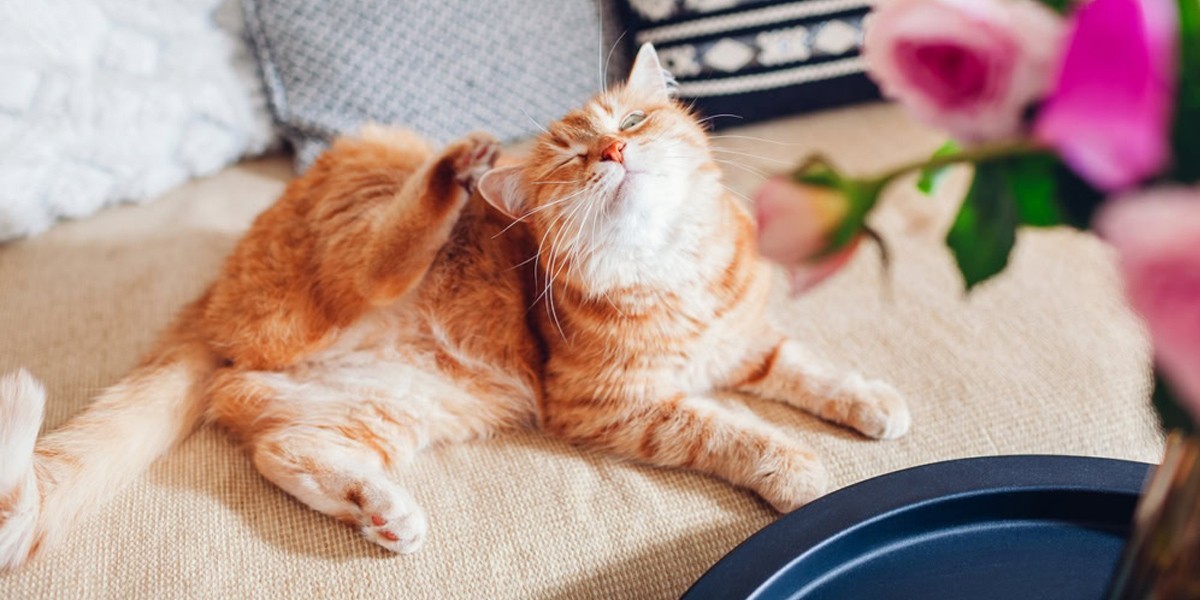The unique character personalities of cats serve as their main recognition factor. Your cat will suddenly switch from being a lap pet to a running creature, filling the room with quick movements. It is sometimes fun to experience their mood swings, yet these variations might indicate underlying emotional or health concerns. If your cat’s behaviour adjusts drastically and frequently, it can be more than only a horrific day — it is probably a sign they want a medical guide. Let’s discover how to recognize these mood shifts and the medicinal drugs which can help your feline pal sense higher.
Understanding Cat Mood Swings
Just like humans, cats can have excellent and terrible days. A bit of grumpiness or extra energy is regular. However, if your cat is strangely aggressive, annoying, withdrawn, or unexpectedly unfavourable, it is probably experiencing greater critical temper swings. These behavioural modifications can be caused by different factors, which include stress, medical conditions, environmental changes, or getting older.
Keep an eye fixed out for steady symptoms: Is your cat hiding more often than ordinary? Hissing or scratching without provocation? Avoiding affection or refusing to consume? These are indicators that have to be no longer ignored. When styles like those persist, it's time to seek advice from a vet.
Why Mood Swings Happen in Cats
There are numerous motives a cat might act out or appear emotionally volatile. Some not unusual reasons consist of the following:
- Medical issues: Pain from arthritis, dental sickness, or different health issues can cause a cat to lash out or act oddly.
- Stress and anxiety: Changes within the home, including transferring, new pets, or loud noises, can trigger anxiety in cats.
- Hormonal imbalances: Especially in older cats, hormone degrees can affect temper and conduct.
- Past trauma: Cats who have been rescued from abusive situations may also bring emotional scars that affect how they react to normal situations.
When the cause isn’t without problems removed — like ongoing tension or chronic pain — medicines can help stabilize your cat's temper and improve its first-rate existence.
Medications That Can Help
Thanks to veterinary improvements, there are now numerous cat meds available to manage mood-associated problems. These medications are often just like the ones used in humans; however, they are mainly formulated for pets.
Here are a few common kinds of temper-stabilizing meds for cats:
- Antidepressants : Drugs like fluoxetine (Prozac for pets) can help with tension, aggression, and compulsive behaviours.
- Anti-tension medicines: Meds along with buspirone or alprazolam may be used to calm a quite anxious or pressured cat.
- Pain management meds: If your cat's conduct is pain-related, medicines like gabapentin can reduce discomfort and enhance temper.
- Hormonal remedies: For troubles related to hormone imbalances, certain treatments can assist in conveying balance to a cat's conduct.
It’s critical to try and medicate your cat in no way without veterinary guidance. A professional will determine if cat meds are desired and prescribe the right type and dosage.
What to Expect with Cat Meds
Starting your cat on temper remedy in a slow manner. It can also take some weeks to see the whole outcome. Some cats respond quickly, while others may also want adjustments to their treatment plan.
Here’s what to keep in mind:
Patience is prime: Just like in humans, conduct changes take time. Your cat may need several weeks earlier than upgrades are substantive.
- Monitor aspect outcomes: Always record uncommon symptoms like lethargy, vomiting, or adjustments in the urge for food to your vet.
- Support via ordinary: Keep your cat’s each day recurring as consistent as possible to lessen strain at the same time as on medicinal drugs.
- Continue other remedies: Behavior therapy, environmental enrichment, and normal playtime need to nevertheless be a part of your cat's well-being plan.
In some instances, cats might also only need meds briefly to get through a difficult patch. In others, the lengthy periods of medicinal drugs may be an exceptional way to maintain emotional balance.
Alternatives and Complements to Medication
While feline medications can make wonders, they’re regularly more powerful when combined with different techniques. Here are some extra steps you may take to help your cat’s emotional fitness:
- Create calm surroundings: Use smooth lighting fixtures, quiet areas, and familiar scents to appease your cat.
- Interactive play: Daily playtime helps lessen strain and channels excess energy.
- Pheromone diffusers: Products like Feliway release calming scents that mimic herbal feline pheromones.
- Nutritional support: Certain diets and supplements are formulated to aid emotional well-being.
Working along with your vet or a feline behaviourist allows you to discover the right stability of drugs and lifestyle changes to hold your cat glad and stable.
Conclusion: A Happier Cat is Possible
Mood swings in cats aren't just “catitude.” They may be signs and symptoms of deeper emotional or physical struggles. Fortunately, with the right care and, in all likelihood, the help of cat meds, your hairy friends can return to a calmer, happier version of themselves. Understanding your cat’s wishes, staring at their behaviour, and operating with a vet are the fine steps you can take. Whether it is feline prescriptions or supportive domestic workouts, your cat deserves to experience secure, steady, and cherished every day.








